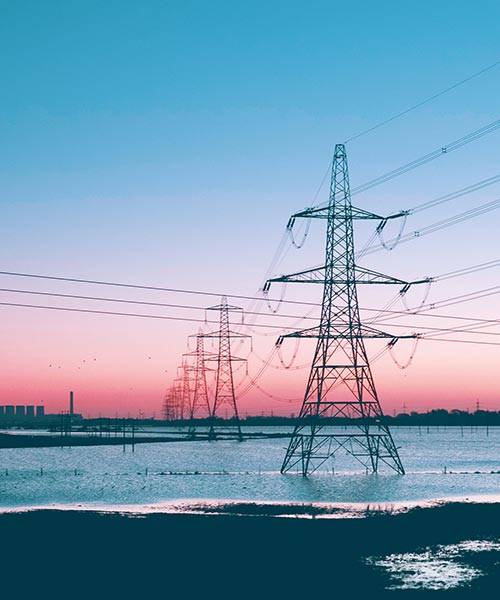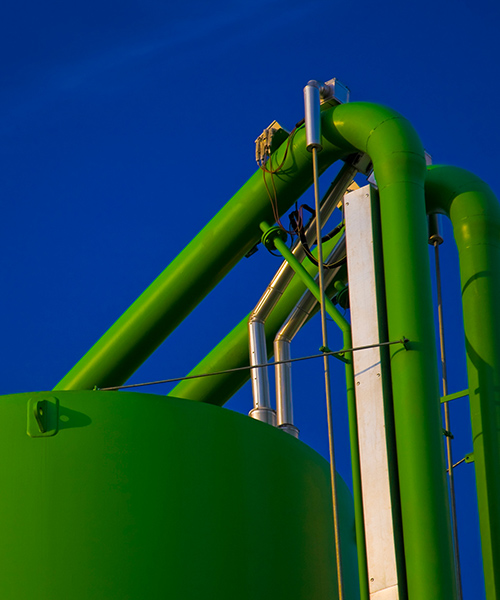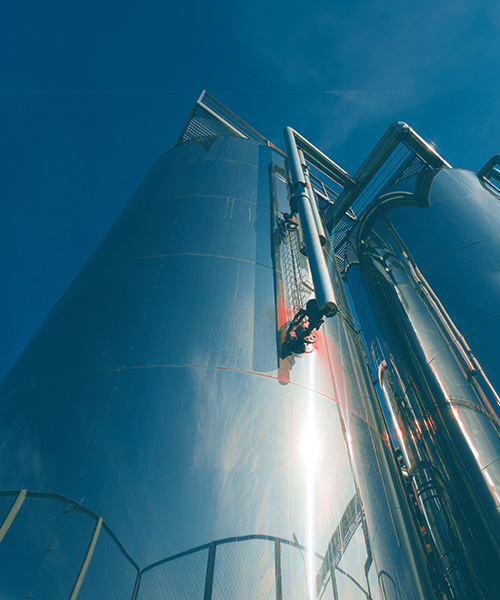March 20, 2024 • 5 min read
What trends will define the conventional energy industry in 2024?
Jim Lenton discusses the upcoming opportunities and challenges facing the conventional energy sector in the year ahead.

“The conventional energy sector is at a crossroads in 2024,” says Lenton.
“Last year, the upstream, midstream and LNG industries were buoyant, with multiple major project sanctions. Basins such as the US Gulf of Mexico, US onshore, Brazil offshore and the Middle East, to name a few, were active. And ongoing global focus on energy security continues to favor demand and commodity pricing in the sector.
“However, eventually hydrocarbon demands will begin to fall, starting with oil,” continues Lenton. “Conventional energy producers need to position themselves to be profitable over the medium term while making CAPEX available to improve sustainability performance.
“There’s been a positive movement across the industry regarding the reduction and monitoring of methane emissions in recent years, which is encouraging. And we’re likely to see this carry on through new projects and into 2024, but we must also apply this momentum to wider carbon emission reductions too, recognizing that economics must stand up.”
So, as the industry transforms, what trends does Lenton expect to see in the year ahead?
Collaboration will grow between conventional energy operators and service providers
One of the biggest areas of transformation will occur between energy operators and service providers and challenging the norm for traditional contracting arrangements for projects.
“Traditionally, operators have relied on lump-sum turnkey engineering, procurement and construction (LS EPC) contracts to deliver their larger projects. Under this arrangement, a fixed price is determined for the entirety of the project work, post the front end engineering design stage. Other penalties may also be in place.
“However, with the increasing complexity and scale of mega energy projects, service providers are reluctant or not able to commit, or prices become very high to manage the contracted risk,” he says.
This shift is putting increased pressure on operators to seek alternative solutions, that will increase the pool of contractors involved while protecting the financial viability of their mega projects.
“For brownfield projects, reimbursable framework contracts are quite common, and we’re seeing a deepening of these relationships so that customers can create a mutually beneficial environment in many cases. Having longer and more meaningful relationships, driven by key performance indicators (KPIs), can unlock value for both parties.”
Midstream energy transition transportation growth
“In the midstream sector, investments are being considered for the transport of energy transition products such as hydrogen and CO2,” explains Lenton. “This is relevant in key energy hubs that consume a lot of energy and emit high amounts of CO2. It will make better commercial sense for companies to work together and share infrastructure, to reduce the overall cost of decarbonization.
“For example, in the US, carbon dioxide transportation and sequestration projects are moving. Notably, large oil companies have made investments in this space already. This investment and collaboration should accelerate throughout 2024. The announced Chevron Bayou Bend project is a promising example of this.
“In the UK and Europe projects are progressing for new hydrogen pipeline networks linking suppliers and consumers. Existing infrastructure for natural gas will inevitably be used to carry hydrogen in more developed economies. This allows for partial decarbonization opportunities once it reaches the end user.”
Momentum for COP28 will increase social license scrutiny
According to Lenton, pressure will increase on conventional energy producers to maintain their social license.
“Last year’s COP28 in Dubai refocused the world on the price of continued hydrocarbon development, carbon dioxide and fugitive emissions,” Lenton continues.
“There was a recent example of this scrutiny in Australia, where government approvals for a gas project were overturned by the courts, under pressure from local communities. This has dented the confidence for investment in the gas sector, as social license comes into question.
“The good news though,” Lenton explains, “is that new developments are increasingly coming to the market with carbon abatement built into development plans.”
Natural gas projects will grow despite US uncertainty
The Biden Administration recently issued a temporary pause on new LNG export permits in the US. During this pause, the US Department of Energy (DOE) will be reviewing proposed projects to assess their impacts on the economy, climate change, and national security, which could delay projects in planning.
“We’re unsure how long this pause will last and with the US entering an election period, it’s hard to pinpoint exactly when these projects will be approved. It’s possible the outcome of the general election could be the deciding factor in this. However, the European Commission has affirmed that this pause will not affect the US supply to Europe over the next two to three years.”
Lenton remains optimistic about the ongoing role of natural gas in global energy systems and expects to see projects proceed in 2024.
“New LNG greenfield projects, brownfield expansions and backfilling production to keep LNG trains full, will be a continued theme this year,” he says. “The Shell LNG Outlook projects that the current global liquefaction capacity will rise from approximately 450 MTPA today to a peak of perhaps over 700 MTPA by 2030, to meet demands. And the only way to meet this demand is if the slated projects proceed.”
There will be stricter regulations to reduce transport oil consumption
Lenton believes regulations could play a greater role in displacing oil demand in 2024.
“It’s reported that 50 to 60 percent of the oil produced in the world today is used for some form of transportation,” he says. “Only six to seven percent of that is air travel, and the rest is tied up in some form of ground transport. This continues to surprise people when we discuss it in team meetings.
“So, it’s clear more needs to be done to continue to educate our industries, and the public on the realities of energy consumption. We can’t just assume that this is common knowledge because it’s not. And governments have an important role to play in facilitating this.
“Open communication with the public and regulation-driven support for decarbonization initiatives is needed to help take unabated oil consumption off the road,” continues Lenton.
“If the world is to make a meaningful dent in the approximately 100 million barrels of oil produced and consumed globally each day, we need to embrace electrification and conversion to other hybrid or clean fuel approaches for transport. I’ve no doubt that this will be an issue in the upcoming elections in some way.
“I expect we’ll see more government involvement to accelerate the decarbonization of ground transport in the coming years,” Lenton continues. “This will create both opportunities and challenges for conventional energy producers, who will need to quickly understand the implications and shift their investment plans accordingly. Transitioning from oil to other downstream products is a good example, and the shift to gas as a lower emissions fuel is inevitable.”
2024 and beyond
This shift will continue to be a balancing act, according to Lenton.
There is a strong global desire for low cost and secure energy. But consumers will also need to understand that the energy transition requires a lot of investment and that some of this will represent a cost increase for energy in the longer term. This is the reality of it.
“I expect 2024 will continue to be transformative, as hydrocarbon suppliers wrestle with global energy demands and sustainability commitments and economics. While the industry will continue to face ongoing challenges, there are also unique opportunities to reimagine the way we communicate, collaborate and deliver more sustainable solutions.”






